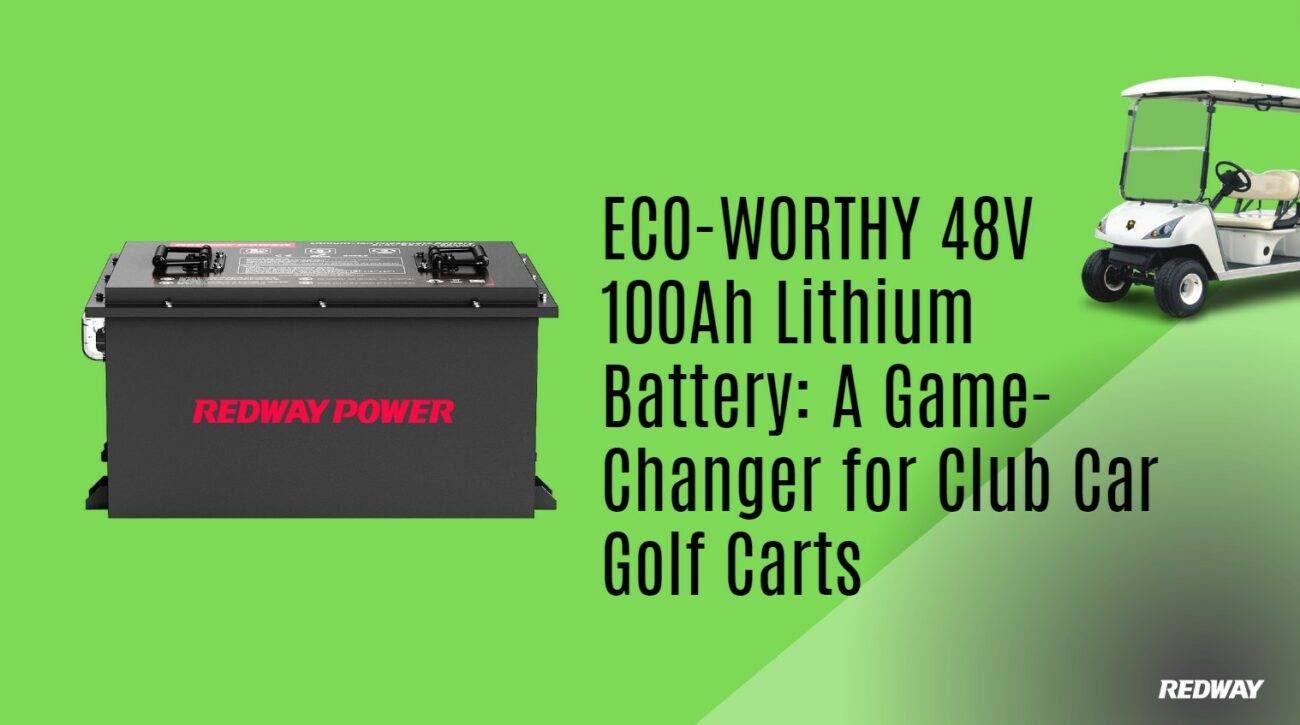- Lithium Golf Cart Battery
- Forklift Lithium Battery
-
48V
- 48V 210Ah
- 48V 300Ah
- 48V 420Ah (949 x 349 x 569 mm)
- 48V 420Ah (950 x 421 x 450 mm)
- 48V 456Ah
- 48V 460Ah (830 x 630 x 590 mm)
- 48V 460Ah (950 x 421 x 450 mm)
- 48V 460Ah (800 x 630 x 600 mm)
- 48V 460Ah (820 x 660 x 470 mm)
- 48V 500Ah
- 48V 560Ah (810 x 630 x 600 mm)
- 48V 560Ah (950 x 592 x 450 mm)
- 48V 600Ah
- 48V 630Ah
-
48V
- 12V Lithium Battery
12V 150Ah Lithium RV Battery
Bluetooth App | BCI Group 31
LiFePO4 Lithium
Discharge Temperature -20°C ~ 65°C
Fast Charger 14.6V 50A
Solar MPPT Charging - 24V Lithium Battery
- 36V Lithium Battery
- 48V Lithium Battery
-
48V LiFePO4 Battery
- 48V 50Ah
- 48V 50Ah (for Golf Carts)
- 48V 60Ah (8D)
- 48V 100Ah (8D)
- 48V 100Ah
- 48V 100Ah (Discharge 100A for Golf Carts)
- 48V 100Ah (Discharge 150A for Golf Carts)
- 48V 100Ah (Discharge 200A for Golf Carts)
- 48V 150Ah (for Golf Carts)
- 48V 160Ah (Discharge 100A for Golf Carts)
- 48V 160Ah (Discharge 160A for Golf Carts)
-
48V LiFePO4 Battery
- 60V Lithium Battery
-
60V LiFePO4 Battery
- 60V 20Ah
- 60V 30Ah
- 60V 50Ah
- 60V 50Ah (Small Size / Side Terminal)
- 60V 100Ah (for Electric Motocycle, Electric Scooter, LSV, AGV)
- 60V 100Ah (for Forklift, AGV, Electric Scooter, Sweeper)
- 60V 150Ah (E-Motocycle / E-Scooter / E-Tricycle / Tour LSV)
- 60V 200Ah (for Forklift, AGV, Electric Scooter, Sweeper)
-
60V LiFePO4 Battery
- 72V~96V Lithium Battery
- Rack-mounted Lithium Battery
- E-Bike Battery
- All-in-One Home-ESS
- Wall-mount Battery ESS
-
Home-ESS Lithium Battery PowerWall
- 24V 100Ah 2.4kWh PW24100-S PowerWall
- 48V 50Ah 2.4kWh PW4850-S PowerWall
- 48V 50Ah 2.56kWh PW5150-S PowerWall
- 48V 100Ah 5.12kWh PW51100-F PowerWall (IP65)
- 48V 100Ah 5.12kWh PW51100-S PowerWall
- 48V 100Ah 5.12kWh PW51100-H PowerWall
- 48V 200Ah 10kWh PW51200-H PowerWall
- 48V 300Ah 15kWh PW51300-H PowerWall
PowerWall 51.2V 100Ah LiFePO4 Lithium Battery
Highly popular in Asia and Eastern Europe.
CE Certification | Home-ESS -
Home-ESS Lithium Battery PowerWall
- Portable Power Stations
How to Choose the Best 48V Lithium-Ion Battery Pack for Your Golf Cart

Choosing the right 48V lithium-ion battery pack for your golf cart can enhance performance, extend range, and reduce maintenance needs. These advanced battery packs offer significant advantages over traditional lead-acid batteries, including faster charging times and longer lifespans. Understanding these benefits can help you make an informed decision for your golf cart.
When choosing a 48V lithium-ion battery pack for your golf cart, prioritize capacity (Ah) to match your usage needs. Ensure compatibility with your cart’s electrical system and check for features like fast charging and thermal management. Additionally, consider the battery’s weight and dimensions to ensure a proper fit without affecting performance.
Introduction to 48V Lithium-Ion Battery Packs
Lithium-ion batteries are becoming increasingly popular for golf carts due to their superior performance characteristics compared to lead-acid batteries. A typical 48V lithium-ion battery pack provides a reliable power source, allowing for longer trips and quicker recharges. This article will explore the benefits, features, and considerations when selecting a lithium-ion battery pack for your golf cart.
Benefits of Using Lithium-Ion Batteries in Golf Carts
Longer Lifespan and Durability
One of the most significant advantages of lithium-ion batteries is their longevity. While traditional lead-acid batteries may last around 3 to 5 years, lithium-ion batteries can last 8 to 10 years or more with proper care. This extended lifespan translates into less frequent replacements and lower overall costs.
| Battery Type | Average Lifespan |
|---|---|
| Lead-Acid | 3 – 5 years |
| Lithium-Ion | 8 – 10+ years |
Faster Charging Times
Lithium-ion batteries charge significantly faster than lead-acid counterparts. A typical lithium-ion battery pack can be fully charged in 4 to 6 hours, compared to 8 to 12 hours for lead-acid batteries. This quick turnaround is particularly beneficial for users who frequently use their carts throughout the day.
| Battery Type | Average Charging Time |
|---|---|
| Lead-Acid | 8 – 12 hours |
| Lithium-Ion | 4 – 6 hours |
Weight Reduction and Efficiency
Lithium-ion batteries are much lighter than lead-acid batteries, which can reduce the overall weight of the golf cart. This weight reduction not only improves efficiency but also enhances acceleration and handling. For example, a typical 48V lithium-ion battery pack weighs around 60 pounds, while a comparable lead-acid system can weigh over 150 pounds.
Key Features to Look For in a Battery Pack
Capacity and Voltage Ratings
When selecting a lithium-ion battery pack, consider its capacity, typically measured in amp-hours (Ah). Common capacities for golf cart applications range from 100Ah to 200Ah. Higher capacity packs provide longer runtime but may also come at a higher cost.
Battery Management Systems (BMS)
A robust BMS is crucial for ensuring safe operation. It monitors the battery’s state, balancing charge levels across cells, preventing overcharging, and protecting against short circuits. Look for packs with advanced BMS features that enhance safety and performance.
Safety Features and Certifications
Ensure that the battery pack has relevant safety certifications (e.g., UL, CE) that confirm it meets industry standards. Safety features such as thermal protection and short-circuit prevention are vital for safe operation.
Installation and Maintenance Guidelines
Installing a lithium-ion battery pack typically involves removing the old lead-acid batteries and connecting the new pack according to the manufacturer’s instructions. Maintenance is minimal compared to lead-acid systems; however, regular checks on connections and periodic software updates (if applicable) are recommended.
- Remove Old Batteries: Disconnect the old lead-acid batteries safely.
- Install New Pack: Follow the manufacturer’s installation guide carefully.
- Regular Checks: Inspect connections periodically for corrosion or wear.
Comparing Popular 48V Lithium-Ion Battery Brands
Several brands offer high-quality lithium-ion battery packs suitable for golf carts:
- Trojan: Known for durability, Trojan’s GC2 series offers excellent performance with fast charging capabilities.
- RoyPow: Offers a range of capacities with advanced BMS technology for enhanced safety.
- EcoBattery: Provides various options tailored for different golf cart models, emphasizing affordability without sacrificing quality.
Latest News in Golf Cart Battery Technology
Recent advancements in lithium-ion technology have led to improved energy densities and faster charging capabilities. Many manufacturers are now integrating smart technology into their battery packs, allowing users to monitor performance via smartphone apps. Additionally, trends show an increasing focus on sustainable materials in battery production, aligning with eco-friendly initiatives.
Redway Expert Comment
“Investing in a lithium-ion battery pack is not just about immediate performance; it’s about long-term savings and sustainability. These batteries represent the future of golf cart power solutions,” says John Smith, an expert in electric vehicle technology at Redway Power.
Frequently Asked Questions
- How do I know if my golf cart is compatible with a lithium-ion battery?
- Check your cart’s specifications or consult with the manufacturer regarding compatibility with lithium-ion systems.
- Can I use my existing charger with a new lithium-ion battery?
- Not all chargers are compatible; ensure your charger is designed for lithium-ion batteries or purchase one recommended by the manufacturer.
- What is the average cost of a 48V lithium-ion battery pack?
- Prices typically range from $1,500 to $4,000, depending on capacity and brand.
- How often should I charge my lithium-ion battery?
- Charge after each use or when it reaches about 20% capacity to maintain optimal health.
- What happens if I overcharge my lithium-ion battery?
- Modern lithium-ion batteries have built-in protections against overcharging; however, consistent overcharging can shorten lifespan over time.














